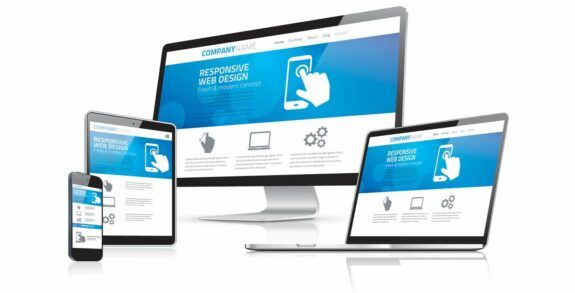Are Progressive Web Apps the Future for Websites?

Progressive Web Apps have become quite the buzz term in the web development world over the past year. Due to this, many people keep asking, are Progressive Web Apps the future for websites? That is a good question and as a top website design company, we wanted to share our insights on the topic.
What are Progressive Web Apps?
Progressive web apps are unique in that they are similar to a standard mobile app but are based on modern web capabilities. In essence, they are a combination of the two technologies that was devised by an engineer at Google named Alex Russell. Think of it as a mobile app that is delivered via the web. They have been in use for about two years while so far, they have not been used in large numbers, progressive web apps have been embraced as a useful option for startups, smaller businesses, and recently a few bigger brands.
While a mobile app (or native app) operates as its own piece of software, a progressive web app is closer to a website that can support features such as a home screen icon, push notifications, geolocation, an offline mode, splash screen, background synchronization, and can even access media features on a device such as the camera, audio, and video.
As many businesses are now targeting customers on mobile devices, the question becomes how best to do this? Basically, there are three options: build a responsive website for both desktop and mobile users, create a mobile (native) app, or create a progressive web app (PWA).
Pro’s of Progressive Web Apps
- Easy access – Native mobile apps need to be downloaded and installed. A PWA can be found with a Google search bar and works on-demand without taking up memory or data on the mobile device. Possible even more important is that a PWA works on all devices while a native app has to be created for both iOS and Android operating systems.
- Economical – Progressive web apps are faster to build and update, therefore the cost is less than a native app.
- Offline content – You can access content offline with a progressive web app. Native apps cannot access data while offline.
- Security – As most sites are now created using HTTPs, you can easily launch a PWA in this secure environment which is a big plus if you plan on having users input contact details, credit card information, or other sensitive data.
- Easier to modify – When you update a standard mobile app and you make an adjustment you also must contact the app store and work with them about the update or adjustment. This process can take a few days or even a week. With a PWA you can just make a fix or update and then it is live.
- Mobile-first approach – Another big benefit of a PWA is they are built on a mobile-first approach for connecting with customers. Twitter, Pinterest, and Starbucks have all transitioned to successful PWA’s in addition to the native apps and have seen increased ad revenues and engagement on the PWA’s.
Con’s of Progressive Web Apps
- Speed – While there has been progress with PWA’s as to how data is cached along with allowing Java scripts and service workers to run separately from the main thread, if you have a very slow or weak connection then there can be problems. The Accelerate Mobile Pages Project that Google had been behind has certainly helped with PWAs, but they aren’t always going to be as fast as native apps. However, this is one aspect that could soon change.
- Missing features – There are a few mobile device features that native apps can use but progressive web apps cannot such as alarms, phonebook access, making adjustments to system settings, and access to hardware sensors.
- Cannot use platform features – Native apps are able to utilize specific benefits from either the iOS or Android platforms such as Apple’s ARKit, native graphic API’s, or Google’s Visual Core
The Bottom Line
The bottom line is that quite a few well-known brands are making a move from native apps to PWA’s and after looking at the positive aspects versus the negative aspects it is easy to understand why. Are Progressive Web Apps the future for websites? We feel that websites will always have a place in the world as long as desktops are relevant but PWA’s are definitely making a case to replace some native apps on a business level because of lower costs and more benefits to the users.
Be sure to check back every week for great new Lounge Lizard blog articles.





